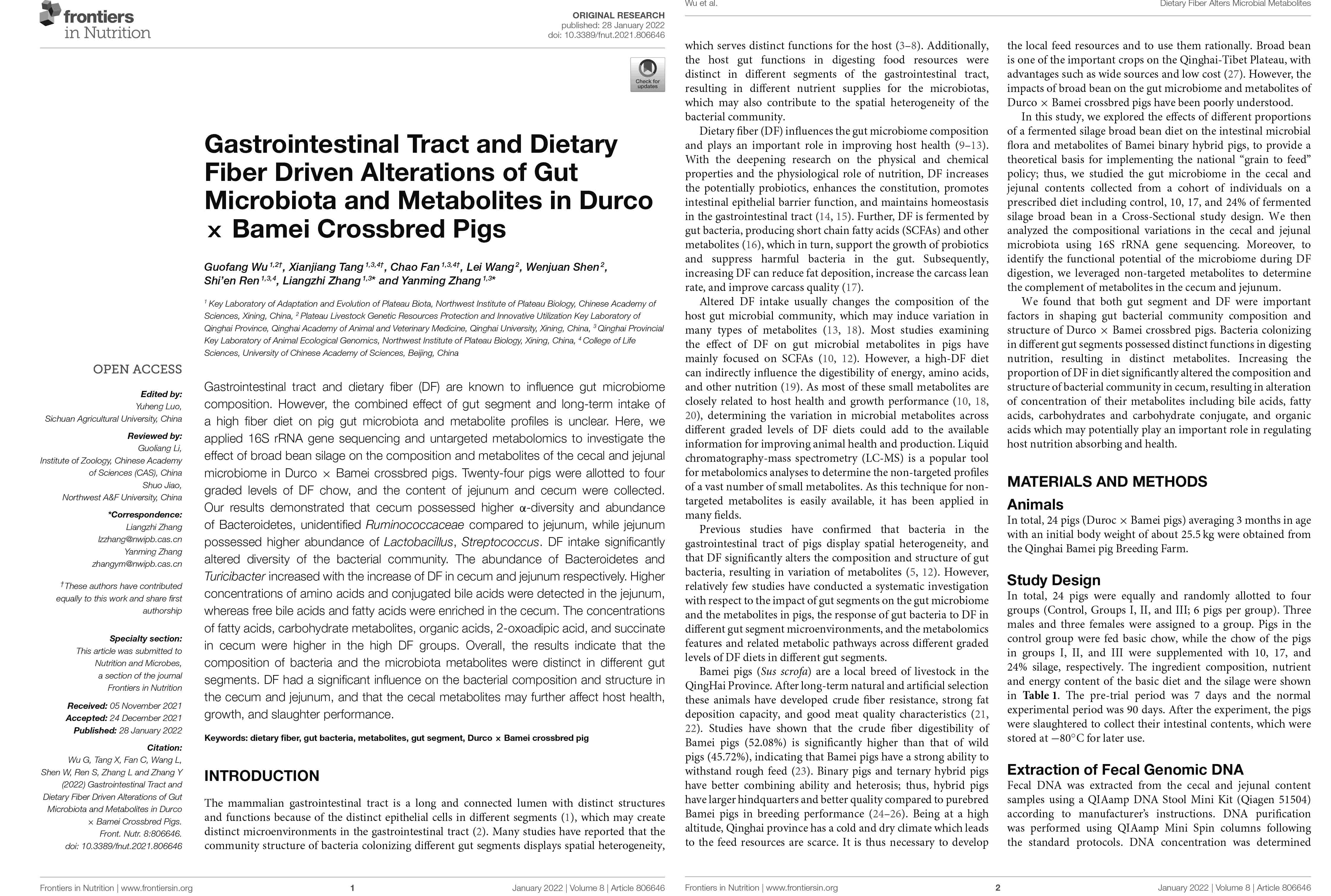Gastrointestinal Tract and Dietary Fiber Driven Alterations of Gut Microbiota and Metabolites in Durco × Bamei Crossbred Pigs
Author:Guofang Wu, Xianjiang Tan, Chao Fan, Lei Wang, Wenjuan Shen, Shi'en Ren, Liangzhi Zhang and Yanming Zhang
Abstract:Gastrointestinal tract and dietary fiber (DF) are known to influence gut microbiome composition. However, the combined effect of gut segment and long-term intake of a high fiber diet on pig gut microbiota and metabolite profiles is unclear. Here, we applied 16S rRNA gene sequencing and untargeted metabolomics to investigate the effect of broad bean silage on the composition and metabolites of the cecal and jejunal microbiome in Durco × Bamei crossbred pigs. Twenty-four pigs were allotted to four graded levels of DF chow, and the content of jejunum and cecum were collected. Our results demonstrated that cecum possessed higher α-diversity and abundance of Bacteroidetes, unidentified Ruminococcaceae compared to jejunum, while jejunum possessed higher abundance of Lactobacillus, Streptococcus. DF intake significantly altered diversity of the bacterial community. The abundance of Bacteroidetes and Turicibacter increased with the increase of DF in cecum and jejunum respectively. Higher concentrations of amino acids and conjugated bile acids were detected in the jejunum, whereas free bile acids and fatty acids were enriched in the cecum. The concentrations of fatty acids, carbohydrate metabolites, organic acids, 2-oxoadipic acid, and succinate in cecum were higher in the high DF groups. Overall, the results indicate that the composition of bacteria and the microbiota metabolites were distinct in different gut segments. DF had a significant influence on the bacterial composition and structure in the cecum and jejunum, and that the cecal metabolites may further affect host health, growth, and slaughter performance.




 青公网安备 63010402000197号
青公网安备 63010402000197号